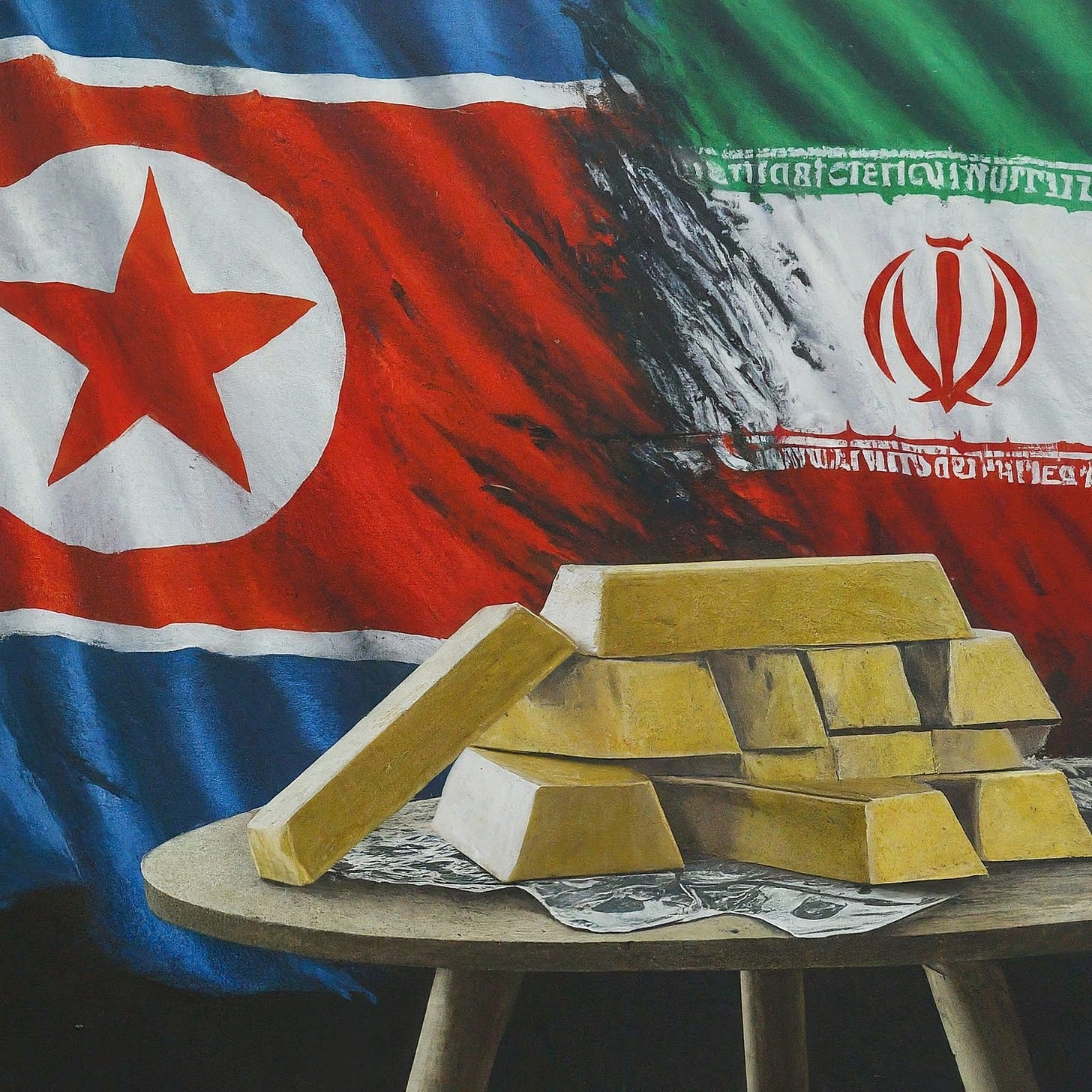UN PoE; Leaks from the Spring 2024 report; New sanctions against Iran; Losing clout in the South Caucasus
Prohibited Transactions for the week of 18 Mar 2024 (#41)
North Korea
There is a possibility that Russia will refuse to extend the mandate of the UN Panel of Experts (PoE) on North Korea, which expires on 30 April 2024. Russia and the PRC have made proposals to the UN — including sunset clauses to parts of the North Korea sanctions regime, and reducing the Panel reports back to once a year from the current twice a year — which are not being accepted by the other three Security Council members, the US, UK and France. In previous years, last minute agreements between the two sides were able to be reached, though there is more uncertainty this year. //Shutting down the PoE would be a huge victory for the DPRK, PRC and Russia. Though it wouldn’t prevent continued analysis of North Korea’s illicit activities by nongovernmental organizations, an authoritative voice would be lost and it becomes easier for Pyongyang, Beijing, and Moscow to ratchet up their sanctions evading activities.
North Korean state media showed Kim Jong-un using a Russian-made Aurus Senat limousine that was recently gifted to him by Vladimir Putin. //The public gifting of this luxury vehicle by Putin, and Kim’s willingness to flaunt it is perhaps a sign that the growing relationship between the two sides — even if it is one of convenience — is one both leaders are invested in.
A Russian cargo vessel, Lady R — sanctioned by the US in 2022 for its role in transporting goods on behalf of the Russian defense ministry — was seen delivering hundreds of 20-foot shipping containers from North Korea’s Rason Port to Russia’s Vostochny Port. The cargo was likely DPRK military equipment for Russia.
Putin’s recent statement that Pyongyang “has its own nuclear umbrella” could be interpreted as de facto Russian acknowledgement of the DPRK as a nuclear state, and may be an attempt to put pressure on South Korea.
Leaks from the soon to be released Spring 2024 UN PoE report on North Korea’s illicit sanctions evasion activity reveal that:
In 2023, 100,000 North Korean workers continued to be employed overseas, generating approximately USD500 million in funds for the DPRK. These workers are active in 40 countries and are involved in industries such as information technology, construction, hospitality and medicine. An expert on the DPRK’s economy noted that the PoE’s figures means that overseas workers could basically finance “much of North Korea’s imports from China,” rendering sanctions “increasingly meaningless.”
The DPRK is currently operating more than 50 restaurants in cities across the PRC, including seven in Beijing, seven in Shanghai, 17 in Shenyang, and a large number in Dandong. UN Security Council Resolution 2397 required all member states to repatriate overseas DPRK workers by December 2019.
The DPRK funds approximately 40 percent of its weapons of mass destruction program (WMD) via “illicit cybermeans.” The PoE is investigating 58 suspected cyberattacks by the DPRK on crypto-related firms between 2017 and 2023 which netted approximately USD3 billion in funds.
Iran
The US sanctioned three procurement networks — based in Iran, Türkiye, Oman, and Germany — which purchased goods on behalf of Iranian military organizations, that could be used to supply Iranian weapon systems. Additional, OFAC sanctioned a Marshall Islands-registered shipping company and a vessel they own, for engaging in illicit ship-to-ship transfers and carrying Iranian goods tied to the Islamic Revolutionary Guard Corps-Qods Force (IRGC-QF) and an Ansar Allah (aka the Houthis) financial facilitator.
A Pakistani government official reiterated that that there is no need for Islamabad to seek a US waiver to complete a natural gas pipeline connecting Iran with Pakistan (see Issues #38 and #39). A US official stated that Washington is against the pipeline, and is in dialogue with Pakistan about trying to find alternatives to Iran.
--
The G7 nations could ban Iran Air flights to Europe if Tehran transfers close-range ballistic missiles to Russia.
According to Iranian media, Baghdad is seeking to use Iranian pipelines to transport gas from Turkmenistan to Iraq.
Recent geopolitical changes in the South Caucasus has left Iranian officials worried about losing clout in the region as Azerbaijan has become emboldened, while Iran’s ally Armenia is in a weakened position.

